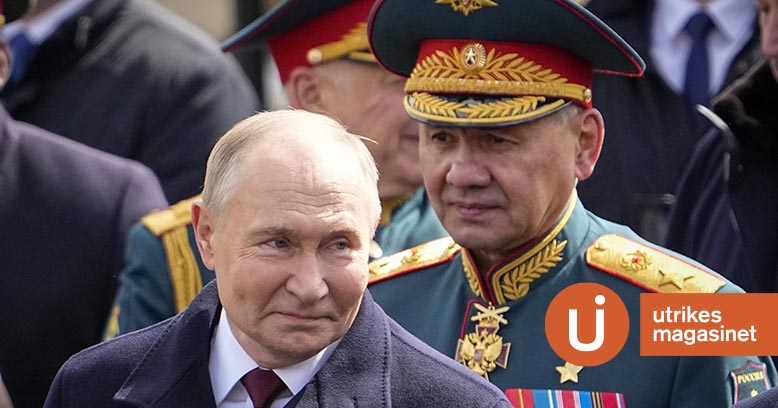
The Kremlin's complicated carousel
Analysis. When Vladimir Putin shuffles the deck, it can easily be interpreted as dissatisfaction with the war in Ukraine or with a faltering Russian war economy – or even as a clue to who the president sees as his crown prince. But the closed nature of the top-down system makes the personnel carousel difficult to interpret. However, there are some clear winners and losers in this shake-up at the top, argue Alexander Golts and Andreas Umland, analysts at the Stockholm Centre for East European Studies.
Publicerad: 2024-05-16
There are several plausible interpretations of the recent Russian leadership castling that got much attention also outside Russia. Most explanations circle around Sergei Shoigus replacement with Andrei Belousov as Russia's defense minister, and Nikolai Patrushev’s replacement with Shoigu as Security Council secretary. But do we really understand the meaning of these changes?
As so often with Kremlinology, outside accounts do not achieve complete clarification of the changes as they search for a larger political logic that may be absent or be secondary. Some see the replacement of the previous Defense Minister Sergei Shoigu as a reaction to the Russian failure in the war against Ukraine. However, Shoigu's new post as Secretary of Russia's Security Council, of which he was already a member as defense minister, is in some respects a promotion (though, perhaps, only a symbolic and temporary one).
His successor in the Defense Ministry, Andrei Belousov, is said to be a good economist. His appointment is therefore seen as a sign that Russia wants to accelerate the transition to a war economy. However, the former First Deputy Prime Minister Belousov has been demoted in certain respects through his new appointment as mere minister. He has no experience in the military-industrial complex and his ministry will be more concerned with the logistics and day-to-day challenges than the economy of the war.
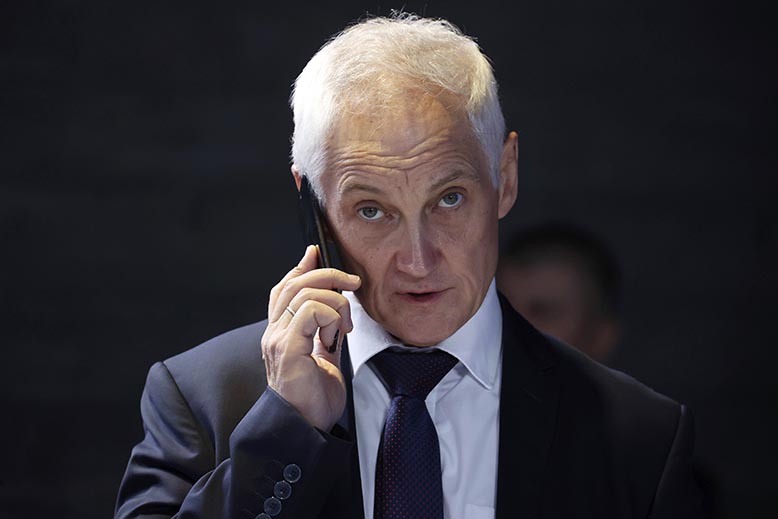 An Economist without military experience. Andrei Belousov is Russia's new minister of defense. Photo: Ekaterina Shtukina/Sputnik/AP/TT
An Economist without military experience. Andrei Belousov is Russia's new minister of defense. Photo: Ekaterina Shtukina/Sputnik/AP/TT
A clear strategy behind all this is not yet apparent. The personnel policy of regimes such as Putin's is often determined more by intra-administrative and power-political motives, that are difficult to interpret, than by obvious domestic or foreign policy aims. This already opaque situation may be compounded by irrational aspects even more difficult to decipher. When assessing the so-called power vertical of Putin and similar potentates, foreign observers sometimes assume a strategic rationality that is not actually there.
Rather, we may be witnessing a "battle of the bulldogs under the carpet" that defies close observation and easy interpretation. The various clans around Putin have to be kept in balance, which then leads to personnel disputes, among other things. Shoigu's removal from the Ministry of Defense increases the power of Chief of the General Staff Valery Gerasimov, who is also in command of the war in Ukraine. Gerasimov appears thus as the main winner of the rochade.
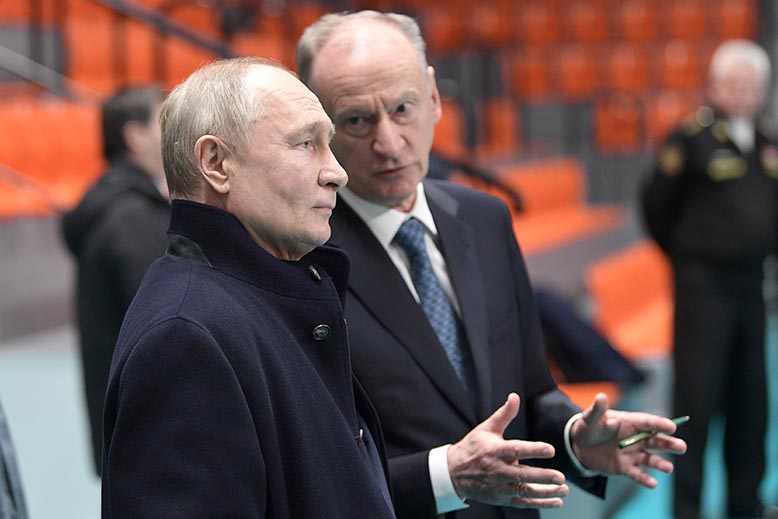 From Russia's second most powerful politician to a bizarre position. Nikolai Patrushev was previously secretary in the powerful Security Council. Photo: Gavriil Grigorov/Sputnik/AP/
From Russia's second most powerful politician to a bizarre position. Nikolai Patrushev was previously secretary in the powerful Security Council. Photo: Gavriil Grigorov/Sputnik/AP/
There appears to be also a loser. The most interesting aspect of Shoigu's widely discussed demotion as defense minister and appointment as secretary of the Security Council is the removal of Nikolai Patrushev from this hitherto influential post. Patrushev has, so far, been regarded as the second most powerful politician in Russia. Russia watchers are therefore now waiting what will happen to his influence and clout. He has been demoted, by Putin, to the bizarre post of presidential aide on shipbuilding. At the same time, Patrushev’s 46-year-old son, Dmitry Patrushev, and hitherto Russia's minister of agriculture was promoted to deputy prime minister in charge of agriculture.
What is clear already today is that Patrushev Sr.'s replacement will reduce the importance of the Security Council in the Russian power structure. In Putin's Russia, not only individual offices but entire institutions have vaguely defined powers. Putin's deinstitutionalization of practically all organs of the Russian political system is a consequential development of the last quarter of a century.
A popular explanation for Belousov's appointment as defense minister is his economic competence, which is needed for Russia's transition to a war economy.
Yet, in Russia’s authoritarian and war-waging state, the position of defense minister – who, in theory, should formulate the views of the supreme leader concerning military policy and implement them – is redundant. Instead, the head of state, being also the commander-in-chief, immediately directs military operations himself through the General Staff. He does not need a transitional link in the form of a minister.
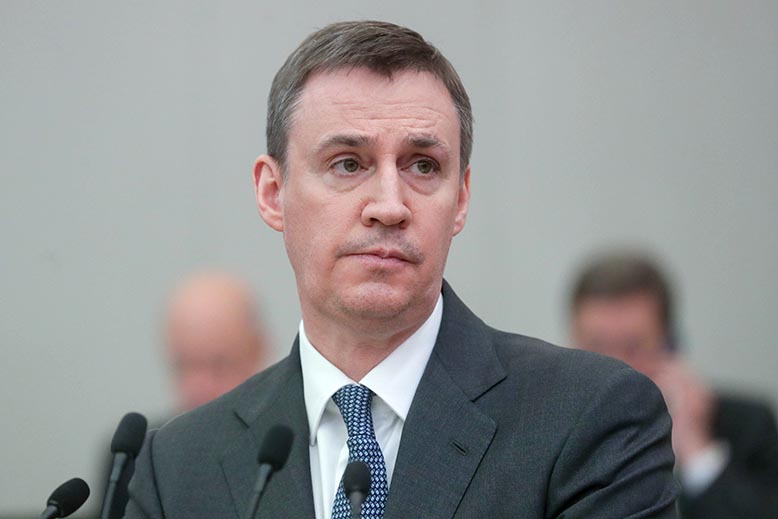 Putin's crown prince? Dmitry Patrushev has been promoted to deputy prime minister. Photo: The State Duma/AP/TT
Putin's crown prince? Dmitry Patrushev has been promoted to deputy prime minister. Photo: The State Duma/AP/TT
Note, in this connection, that it was no coincidence that, throughout World War II, Stalin held the title of people’s commissar of defense. The functions of the USSR’s military department were auxiliary. Orders and directives to the troops were issued by the supreme commander-in-chief's headquarters. This seems to be what the military command system also looks like today.
Putin directs the troops through the General Staff. As a result, Shoigu turned out to be a superfluous, unnecessary link in the management chain. Being an experienced manager, he realized this quickly. Shoigu thus tried to concentrate on the military industry and began to hold regular meetings to intensify the output of the military industry. Often, he would give the representatives of the industry a beating.
Concerning military production under war conditions, market mechanisms often do not work. Instead, it needs a leader with extraordinary powers, able to "manually", without the usual balance of supply and demand, in the shortest possible time to build complex production chains that include dozens, if not hundreds of suppliers. Shoigu was unsuccessful in this job.
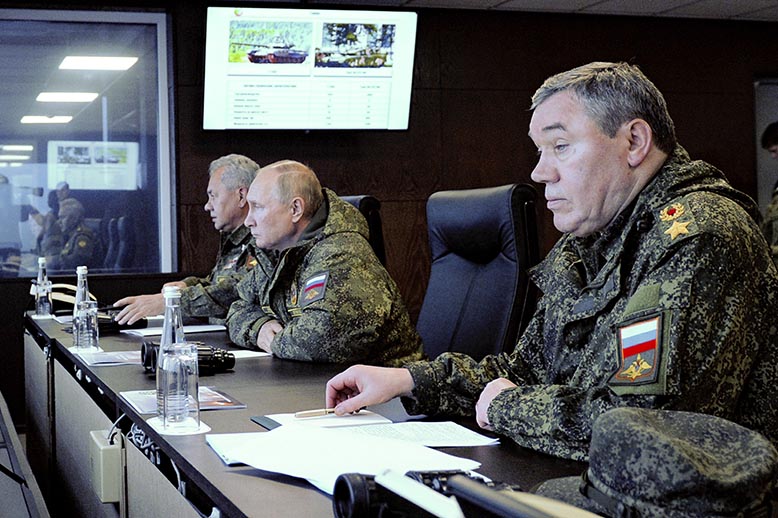 More powerful than before. Chief of the General Staff Valery Gerasimov during a military drill with former Defense Minister Sergei Shoigu and President Vladimir Putin. Photo: Mikhail Klimentyev, Sputnik/AP/TT
More powerful than before. Chief of the General Staff Valery Gerasimov during a military drill with former Defense Minister Sergei Shoigu and President Vladimir Putin. Photo: Mikhail Klimentyev, Sputnik/AP/TT
Yet, there is no reason to believe that Belousov will be more effective in this. His appointment is an attempt to overcome some key vices of the Putin System. It is indicative, for instance, that Belousov named as one of his main tasks the need to sort out pricing in military production. In this connection, it is pertinent to recall that a similar attempt led in 2012 to a sharp conflict between then Defense Minister Anatoly Serdyukov and the directors of the defense-industrial complex. As a result, Serdyukov lost his post.
In any way, we do not know for sure whether all these considerations were ultimately important for Belousov's appointment as well as other recent demotions and promotions. Instead, personal preferences or clan conflicts, which are difficult to recognize from the outside, may have played a decisive role. Some observers go so far as to see in Belousov or/and Patrushev Jr. crown princes for a possible succession to Putin. This may or may not be the case. It is not possible for either domestic or foreign observers to fully decode the evolution of Russia's Byzantine political elite constellation.